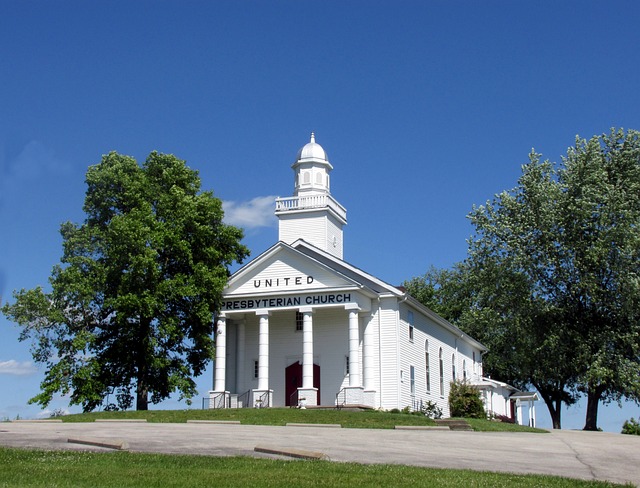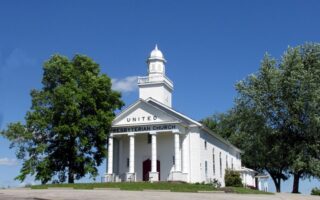Presbyterians focus on the worship of God, the authority of Scripture, the importance of community, and the mission of spreading the Gospel.
Table of Contents
The Role of Scripture in Presbyterian Beliefs
Presbyterians are a Christian denomination that places a strong emphasis on the role of scripture in their beliefs. Scripture, which refers to the Bible, is considered the ultimate authority for Presbyterians, guiding their faith and practice. In this article, we will explore the significance of scripture in Presbyterian beliefs and how it influences their worship, theology, and daily lives.
For Presbyterians, the Bible is not just a collection of ancient texts, but a living and relevant guide for their lives. They believe that the Bible is the inspired word of God, written by human authors under the guidance of the Holy Spirit. This belief in the divine inspiration of scripture shapes their understanding of its authority and importance.
Presbyterians view the Bible as the primary source of knowledge about God, Jesus Christ, and the Christian faith. It serves as a foundation for their theology and informs their understanding of God’s character, salvation, and the purpose of human life. The Bible is seen as a comprehensive guide that addresses all aspects of life, providing wisdom and guidance for moral and ethical decision-making.
In Presbyterian worship, scripture holds a central place. The reading and preaching of the Bible are integral parts of their worship services. Sermons are often based on a specific passage or theme from the Bible, and the congregation is encouraged to engage with the text and apply its teachings to their lives. The Bible is seen as a means through which God speaks to his people, and its study and interpretation are highly valued.
Presbyterians also emphasize the importance of personal Bible study and reflection. They believe that individuals should have direct access to scripture and be able to interpret it for themselves, guided by the Holy Spirit. This belief in the priesthood of all believers encourages Presbyterians to engage with the Bible on a personal level, seeking to deepen their understanding of God’s word and its relevance to their lives.
The Presbyterian Church has a rich tradition of biblical scholarship and theological reflection. The denomination has produced many renowned theologians and scholars who have contributed to the understanding and interpretation of scripture. These scholars engage in rigorous study of the Bible, exploring its historical, cultural, and literary contexts to gain a deeper understanding of its meaning.
Presbyterians also value the communal aspect of scripture. They believe that the Bible is best understood and interpreted within the context of the Christian community. Through dialogue, discussion, and study groups, Presbyterians seek to discern the meaning of scripture together, drawing on the insights and perspectives of others. This communal approach to scripture helps to ensure a balanced and well-rounded interpretation of the text.
In conclusion, the role of scripture in Presbyterian beliefs is central and foundational. Presbyterians view the Bible as the inspired word of God, guiding their faith and practice. Scripture influences their worship, theology, and daily lives, serving as a comprehensive guide for moral and ethical decision-making. The reading and preaching of the Bible are integral parts of their worship services, and personal Bible study is encouraged. The Presbyterian Church also values the communal aspect of scripture, engaging in dialogue and study groups to discern its meaning together. Through their focus on scripture, Presbyterians seek to deepen their understanding of God’s word and its relevance to their lives.
Presbyterian Worship Practices and Traditions

Presbyterian Worship Practices and Traditions
When it comes to worship practices and traditions, Presbyterians have a unique approach that sets them apart from other Christian denominations. With a focus on simplicity, reverence, and community, Presbyterian worship services are designed to create a meaningful and inclusive experience for all who attend.
One of the key aspects of Presbyterian worship is the emphasis on the Word of God. The Bible holds a central place in Presbyterian worship, with readings from both the Old and New Testaments forming an integral part of the service. The sermon, delivered by the minister, is often the highlight of the worship experience, as it provides an opportunity for the congregation to delve deeper into the teachings of the Bible and apply them to their daily lives.
In addition to the Word, music plays a vital role in Presbyterian worship. Hymns are sung throughout the service, with the congregation joining together in praise and worship. Traditional hymns are often favored, but contemporary songs are also incorporated to appeal to a wider range of worshippers. The music is accompanied by organ or piano, creating a reverent and uplifting atmosphere.
Another important aspect of Presbyterian worship is the sacraments. Presbyterians recognize two sacraments: baptism and the Lord’s Supper (also known as communion). Baptism is seen as a sign of initiation into the Christian faith and is typically administered to infants or new believers. The Lord’s Supper is a commemoration of Jesus’ Last Supper with his disciples and is celebrated regularly during worship services. It involves the sharing of bread and wine (or grape juice) as a symbol of Christ’s body and blood.
Presbyterian worship services are known for their order and structure. The liturgy follows a set pattern, which includes prayers, readings, hymns, and the sermon. This structured approach helps to create a sense of unity and allows for a smooth flow of worship. However, within this framework, there is also room for spontaneity and flexibility, as the Holy Spirit is believed to guide and inspire the worship experience.
Community is a fundamental aspect of Presbyterian worship. The congregation is seen as a family, and the worship service provides an opportunity for members to come together, support one another, and grow in their faith. Presbyterian churches often have a strong sense of community, with regular fellowship activities and opportunities for service and outreach.
Presbyterians also place a strong emphasis on education and learning. Sunday school classes and Bible studies are common in Presbyterian churches, providing opportunities for individuals to deepen their understanding of the Bible and engage in meaningful discussions. This commitment to education extends to the worship service itself, as the sermon is often thought-provoking and intellectually stimulating.
In conclusion, Presbyterian worship practices and traditions are characterized by a focus on the Word of God, music, sacraments, order, community, and education. By creating a worship experience that is both reverent and inclusive, Presbyterians seek to foster a deep connection with God and with one another. Whether through the reading of Scripture, the singing of hymns, or the sharing of the sacraments, Presbyterian worship services provide a space for individuals to encounter God and grow in their faith.
Presbyterian Views on Salvation and Grace
Presbyterians, like many other Christian denominations, have their own unique views on salvation and grace. These beliefs shape their understanding of how individuals can attain salvation and the role that God’s grace plays in this process.
For Presbyterians, salvation is seen as a gift from God that cannot be earned through good works or personal merit. Instead, they believe that salvation is solely dependent on God’s grace and the work of Jesus Christ on the cross. This means that individuals cannot save themselves through their own efforts, but rather must rely on God’s grace to be saved.
Presbyterians also emphasize the concept of predestination, which is the belief that God has already chosen who will be saved and who will not. This idea is rooted in the teachings of John Calvin, a prominent figure in the Reformation movement. According to Calvin’s theology, God’s choice of who will be saved is based solely on his own will and not on any merit or action of the individual.
This belief in predestination can be difficult for some to understand or accept, as it seems to suggest that some people are predestined for salvation while others are not. However, Presbyterians believe that God’s choice is not arbitrary or unfair, but rather a reflection of his perfect wisdom and justice. They trust in God’s sovereignty and believe that he knows what is best for each individual.
Despite the emphasis on predestination, Presbyterians also believe in the importance of human responsibility. They believe that individuals are called to respond to God’s grace and to live a life of faith and obedience. While they do not believe that good works are necessary for salvation, they see them as a natural outpouring of a genuine faith.
Presbyterians also believe in the concept of perseverance of the saints, which means that those who are truly saved will continue to persevere in their faith until the end. This does not mean that believers will never struggle or sin, but rather that they will ultimately remain faithful to God. This belief is based on the idea that God’s grace is sufficient to sustain believers throughout their lives.
In summary, Presbyterians focus on the belief that salvation is a gift from God that cannot be earned through good works. They emphasize the concept of predestination, trusting in God’s sovereign choice of who will be saved. However, they also believe in the importance of human responsibility and the need for individuals to respond to God’s grace with faith and obedience. They believe in the perseverance of the saints, that those who are truly saved will continue to live a life of faith until the end. These beliefs shape the Presbyterian understanding of salvation and grace, guiding their approach to living out their faith.
Presbyterian Church Governance and Leadership Structure
The Presbyterian Church is a Protestant Christian denomination that is known for its unique governance and leadership structure. Unlike other Christian denominations, Presbyterians have a strong emphasis on the role of elders in decision-making and the overall governance of the church.
At the heart of Presbyterian Church governance is the belief in the priesthood of all believers. This means that every member of the church has a role to play in the decision-making process. However, the Presbyterian Church also recognizes the need for leadership and accountability. This is where the role of elders comes into play.
Elders are elected by the congregation and serve as the spiritual leaders of the church. They are responsible for providing guidance, teaching, and pastoral care to the members of the congregation. Elders also have the authority to make decisions on behalf of the church, including matters of doctrine, worship, and discipline.
The leadership structure of the Presbyterian Church is hierarchical in nature. At the local level, each congregation is governed by a session, which is made up of the pastor and a group of elders. The session is responsible for the day-to-day operations of the church, including worship services, pastoral care, and outreach programs.
Above the session is the presbytery, which is a regional governing body made up of representatives from each congregation within a specific geographic area. The presbytery provides oversight and support to the local congregations, and it is responsible for ordaining and installing ministers.
The next level of governance is the synod, which is a larger regional body that oversees several presbyteries. The synod provides coordination and support to the presbyteries within its jurisdiction and helps to ensure that the churches are working together towards common goals.
Finally, at the highest level of governance is the General Assembly, which is the national governing body of the Presbyterian Church. The General Assembly is made up of representatives from each presbytery and is responsible for making decisions on behalf of the entire denomination. It meets annually to discuss and vote on matters of doctrine, worship, and church policy.
The Presbyterian Church’s emphasis on governance and leadership structure is rooted in its belief in the priesthood of all believers. By involving all members of the church in the decision-making process, Presbyterians strive to create a sense of ownership and accountability within the congregation.
This unique governance structure also helps to ensure that decisions are made in a thoughtful and democratic manner. By having multiple levels of governance, the Presbyterian Church provides checks and balances to prevent any one individual or group from having too much power.
In conclusion, the Presbyterian Church places a strong emphasis on governance and leadership structure. Through the involvement of elders and the belief in the priesthood of all believers, Presbyterians strive to create a sense of ownership and accountability within the congregation. This unique governance structure helps to ensure that decisions are made in a thoughtful and democratic manner, and that power is distributed among multiple levels of leadership.
Conclusion
Presbyterians focus on the sovereignty of God, the authority of Scripture, and the importance of community and worship. They emphasize the priesthood of all believers and the need for spiritual growth and discipleship.



